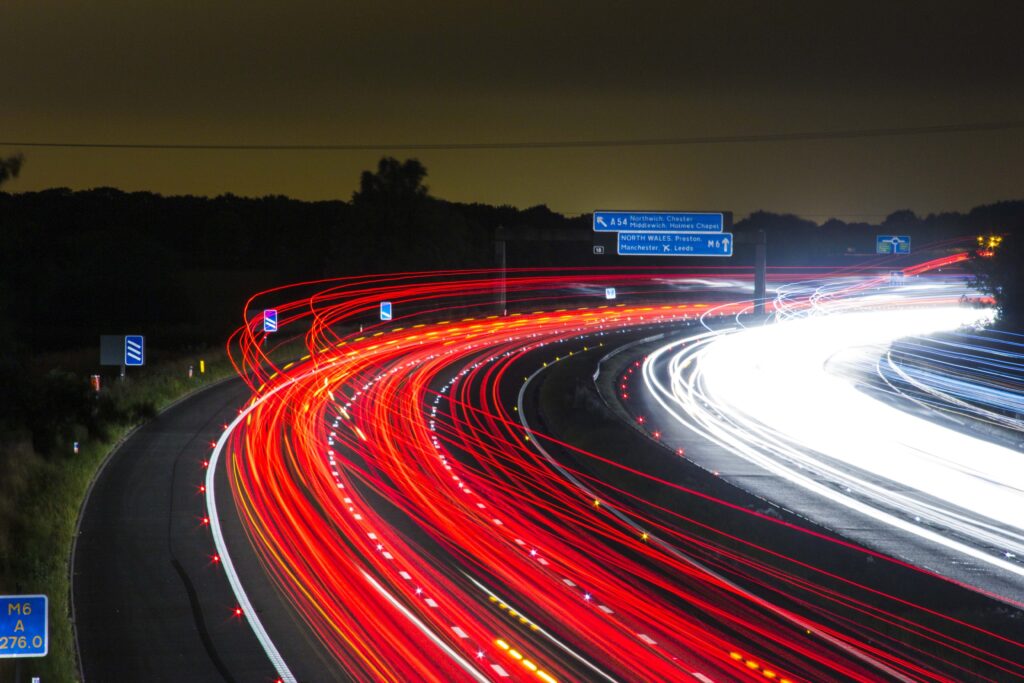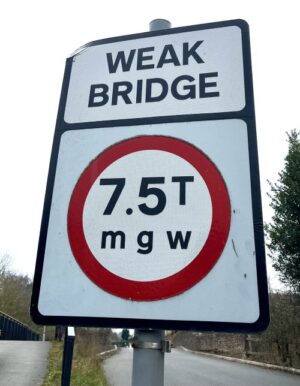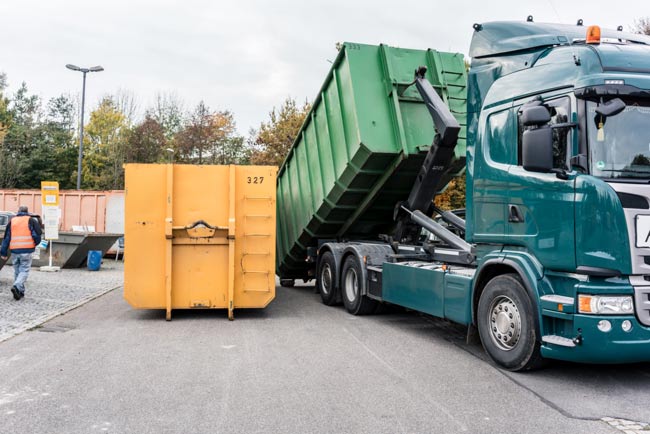Contents
- What are the national speed limits for lorries?
- Are there any locally set maximum speed limits?
- HGV speed limiter regulations UK
- HGV motorway speed limits
- Are lorries limited to 56mph on UK roads?
- HGV speeding fines and enforcement
- In Conclusion: Don’t Risk Your Livelihood
This article will help you ensure that your HGV is driven within UK speed limits, according to the Highway Code, so you can keep on ruling the road and stay on the right side of the law.
What are the national speed limits for lorries?
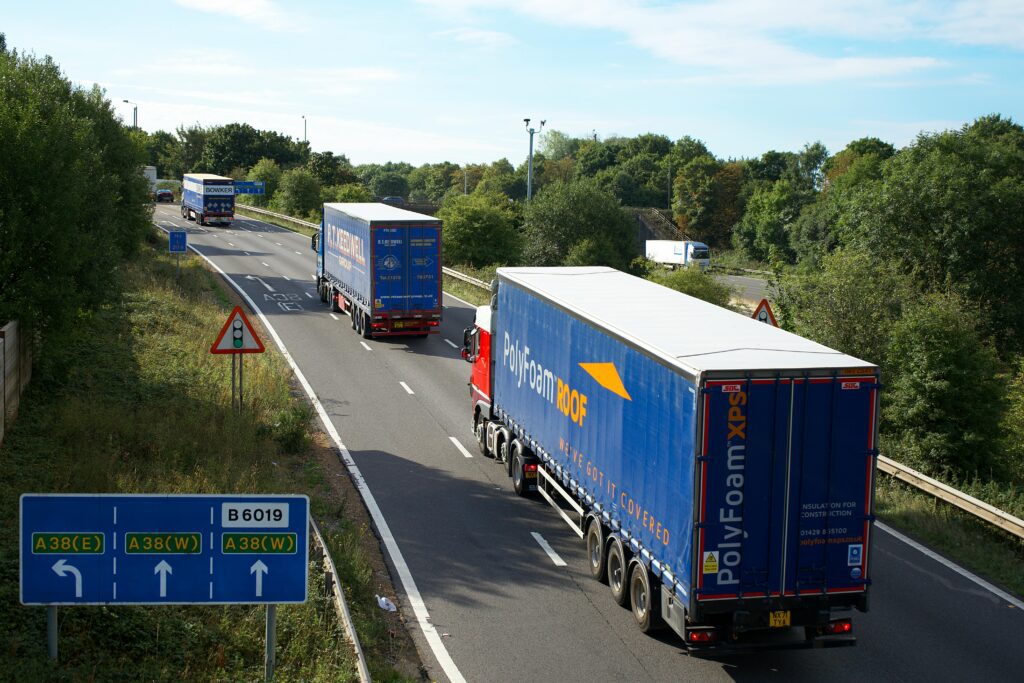
Due to the weight of HGVs, lorry speed limits are sometimes set lower than for smaller vehicles.
The national speed limit in the UK, set at 30mph (48km/h) applies to all single and dual carriageways with streetlights unless there are signs in place to show otherwise. In built-up areas no vehicle may travel above 30mph.
Road speed signs inform drivers of the fastest allowed speed on that stretch of road. Speed limits must not be exceeded but drivers should drive at a safe speed under the maximum limit, dictated by both road conditions and vehicle type.
Visit gov.uk for more information on speed limits on UK roads.
Are there any locally set maximum speed limits?
In certain areas local councils may choose to set local speed limits, which must be clearly marked with signs.
In September 2023, the Welsh government introduced legislation making 20mph the default speed limit on restricted roads.
Restricted Roads
Restricted roads are usually located within residential and built-up areas where there are a lot of pedestrians, with street lighting typically spaced no more than 200 yards apart.
The Welsh government has recognised that not all restricted roads are suitable for a 20mph speed limit and certain roads are therefore exempt. Exempt roads are subject to Traffic Regulation Orders (TROs) and are clearly marked with 30mph speed limit signs.
A map is available on DataMapWales to show which roads are now limited to 20mph have remained at 30mph.
HGV speed limiter regulations UK
In the UK, HGVs and all other vehicles with a maximum laden weight of more than 3.5 tonnes must be fitted with a speed limiter.
The HGV speed limiter regulations in the UK exist to try to reduce the number of accidents that take place on the country’s roads. Speed limiters work by limiting the maximum speed that a vehicle can reach. This is done by restricting the fuel supply to the engine. This can mean that a vehicle won’t always reach the speed limit of the road it is travelling on.
Speed limiters must also be fitted on vehicles with more than 8 passengers.
HGV speed limits on single carriageways
The HGV speed limit on single carriageway roads is set at 50mph (80km/h) for vehicles up to and over 7.5 tonnes maximum laden weight in England and Wales. In Scotland the single carriageway HGV speed limit is set lower at 40mph (64km/h).
Speed limits on dual carriageways
When travelling on dual carriageways speed limits for HGVs are set slightly higher, at 60mph (96km/h) in England and Wales for vehicles up to and over 7.5 tonnes maximum laden weight. As with single carriageways, the speed limit for HGVs is lower in Scotland, at 50mph (80km/h).
HGV motorway speed limits
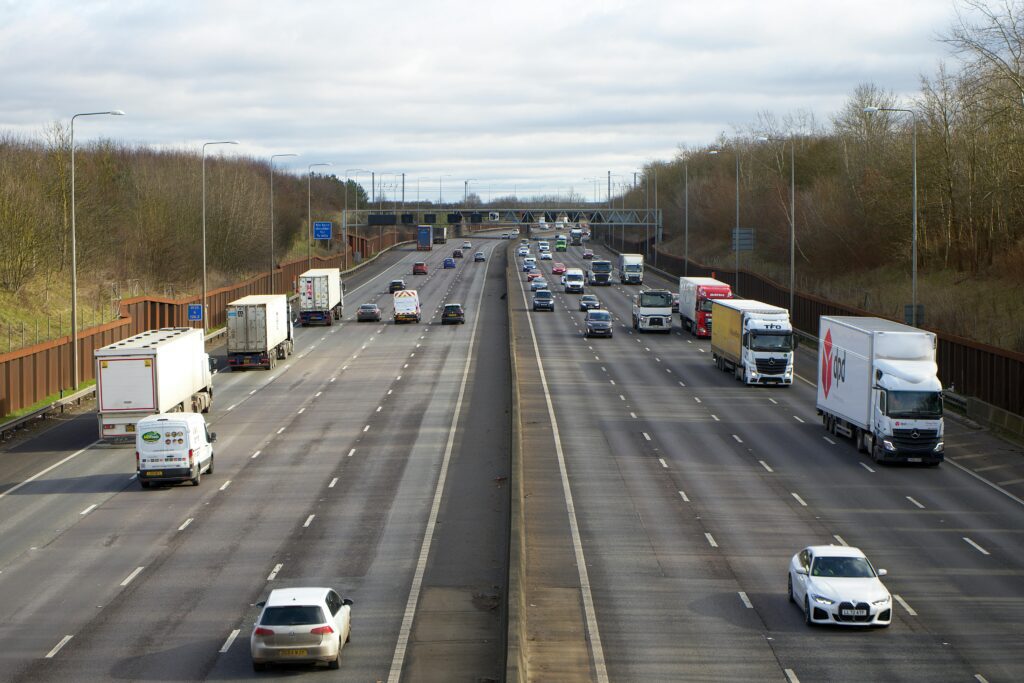
Where HGVs are driven on motorways the maximum speed limit increases again from those enforced on dual carriageways.
HGVs that have a maximum laden weight of up to 7.5 tonnes may be driven up to 70mph (112km/h) unless they are towing a trailer or are articulated, in which case a 60mph (96km/h) speed limit applies.
For commercial vehicles in England and Scotland, with a maximum laden weight of 7.5 tonnes and above, the maximum motorway speed limit is 60mph (96km/h).
Are lorries limited to 56mph on UK roads?
No, not on UK roads. HGV speed limits were increased on single and dual carriageways in 2015. This change led to speed limits rising to 50mph and 60mph respectively (as detailed above).
However European legislation requires all vehicles over xx tonnes to be fitted with a speed limiter to restrict speeds to 56mph.
The reason the 56mph EU speed limiter restriction still applies is to give HGVs travelling at 56mph and are overtaking, or are travelling downhill, a small amount of leeway before they are breaking the national speed limit.
HGVs fitted with speed limiters cannot accelerate above 56mph, but their speed may naturally increase under certain conditions.
HGV speeding fines and enforcement
All drivers must remember that speeding kills and that HGV speeding offences are especially serious.
Speeding fines apply to all drivers that are caught breaking the speed limit. However, for HGV drivers there can be more serious consequences than receiving a fine and penalty points on your licence.
If a professional driver is caught breaking the speed limit (either in a private or professional vehicle) they could face regulatory action by the Traffic Commissioner, who governs their vocational license. This could result in a licence being suspended or completely revoked, which would theoretically end the driver’s career.
As you would expect, speeding in an HGV is taken extremely seriously by the UK Government. If you are caught speeding in an HGV your employer is legally required to report you to the Traffic Commissioner. A driver with two speeding penalties can be called to attend a Driver Conduct Hearing.
HGV Speeding penalties
In the UK the minimum penalty for speeding is a £100 fine and 3 penalty points added to the driver’s licence.
A driver will be disqualified from driving if they are given 12 or more penalty points within a rolling three-year period. HGV drivers should remember that speeding offences committed in your own car will also apply to your HGV licence.
Unlike car drivers, HGV drivers are not usually offered the opportunity to attend a speed awareness course to avoid points being accrued.
Speeding Bands
Speeding penalties are classed depending on their severity as ‘Band A’, ‘Band B’ and ‘Band C’, and are determined by how many miles per hour over the speed limit an offender was driving. Other factors are also taken into account, including driving conditions, vehicle type being driven and even the population density at the time of the offence.
The minimum £100/3 point penalty is also subject to a percentage calculation of your weekly income to a maximum of £1000 (£2,500 on motorways) up to 175%.
The most excessive speeds are covered by ‘Band C’ and incur the most severe penalties. These offences could earn a driver 6 points on their licence and a driving ban for up to 56 days. A ban of this length would result in the licence being lost and a new application for a driving licence needing to be made.
In Conclusion: Don’t Risk Your Livelihood
Fines and penalties aside, an HGV driver risks losing their entire livelihood if caught speeding. The Traffic Commissioner will not hesitate to suspend or even revoke a licence if a driver is caught speeding.
At MHF (UK) Ltd we urge all drivers to think before they drive – think about the rules of the road, other more vulnerable road users and above all, road safety. Be road aware, always paying attention to the road and weather conditions. Speed kills.
HGV Speed Limit FAQs
What is the speed limit for HGVs on motorways?
For heavy goods vehicles (HGVs) over 7.5 tonnes, the national speed limit on motorways is 60 mph (96 km/h), unless otherwise indicated by road signs.
What is the HGV speed limit on single carriageways?
On single carriageways, HGVs over 7.5 tonnes are limited to 50 mph (80 km/h), unless a lower speed limit is signposted.
Which roads have a 20mph speed limit in Wales?
In Wales, 20mph is now the default speed limit on restricted roads—typically built-up areas with street lighting spaced at less than 200 yards. Some roads may still be 30mph if signed as exceptions.

